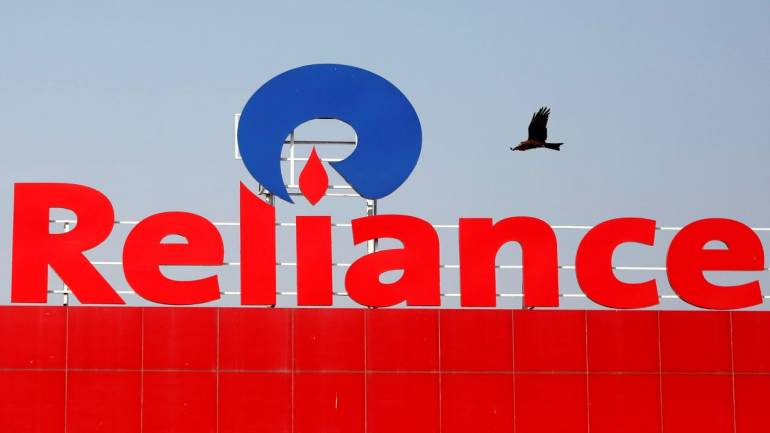*RIL Q3: Highest-ever quarterly net profit; Jio and retail propel RIL’s Q3 profit to Rs 11,640 crore.*
Oil-to-telecom major Reliance Industries beat Street estimates in consolidated net profit for the quarter ended December 31, 2019. The company reported the highest-ever quarterly consolidated net profit of Rs 11,640 crore for Q3FY20
*Here are 10 key takeaways*
*1 – Revenue:* The company attributed the decrease in revenue to a 10.6 percent decline in O2C business revenues, with lower product price realization and a 6.6 percent fall in Brent crude price. This was partially offset by continuing growth momentum in consumer businesses.
*2 – Petchem segment revenue softens:* Consolidated revenue from the petchem segment slipped 19 percent YoY to Rs 36,909 crore in Q3FY20 against RS 45,619 crore reported in the same quarter of the previous financial year. Sequentially, the numbers were down 4.23 percent against Rs 38,538 crore reported in Q2FY20. The segment’s EBITDA declined 24.43 percent YoY and 18.76 percent QoQ to Rs 7,252 crore.
*3 – Refining segment’s revenue up sequentially:* Consolidated revenue from the refining segment slipped 7.18 percent YoY to Rs 1,03,718 crore in Q3FY20 against Rs 1,11,738 crore reported in the same quarter of the previous financial year. Sequentially, the numbers were up 6.67 percent against Rs 97,229 crore reported in Q2FY20. The segment’s EBITDA climbed 11.64 percent YoY and 15.39 percent QoQ to Rs 6,530 crore.
*4 – Organised retail remains up:* With a YoY jump of 27.41 percent, the company’s organised retail segment continued rising during December quarter, coming at Rs 45,327 crore against Rs 35,577 crore for Q3FY19 and Rs 41,202 crore for Q2FY20. The segment’s EBITDA jumped 62.32 percent YoY and 17.44 percent QoQ to Rs 2,727 crore.
*5 – Digital services revenue rises:* *The company’s digital services revenue climbed 36.16 percent YoY to Rs 17,555 crore in Q3FY20, against Rs 12,893 crore in the corresponding quarter of the previous financial year.* On a sequential basis, the numbers were 6.18 percent up. The segment’s EBITDA jumped 43.5 percent YoY and 9.56 percent QoQ to Rs 5,833 crore. The digital services segment includes the provision of a range of digital services in India and investment in the telecom infrastructure business.
*6 – EPS improves:* Basic earnings per share (EPS) for December quarter was Rs 18.4 as against Rs 17.3 in the corresponding period of the previous year.
*7 – Outstanding debt increases slightly:* The company’s outstanding debt stood at 3,06,851 crore ($43.0 billion) compared to Rs 2,87,505 crore as on 31st March 2019.
*8 – JV with BP:* BP and RIL signed a definitive agreement relating to the formation of new Indian fuels and mobility joint venture. The venture is expected to be formed during the first half of 2020, subject to regulatory and other customary approvals. The venture expects to expand from RIL’s current fuel retailing network of over 1,400 retail sites and 30 aviation fuel stations across India to up to 5,500 retail sites and 45 aviation fuel stations over the next five years to become the most preferred provider of automotive and aviation fuels. The retail network will operate under the Jio-BP brand.
*9 – Jio Platforms setup:* RIL has set up a wholly-owned subsidiary Jio Platforms Limited (JPL), for digital platform initiatives. RIL invested Rs 1,65,000 crore in the wholly-owned subsidiary through OCPS and Rs 4,961 crore in equity shares. The subsidiary has acquired RIL’s investment of Rs 64,450 crore in Reliance Jio Infocomm Limited (RJIL). This New-age Digital Technology Platform entity is proposed for holding all digital platforms including RJIL, the digital connectivity platform. This will enable access to world-class technology platforms across healthcare, education and agriculture.
*10 – Framework Agreement with Abu Dhabi National Oil Company (ADNOC):* ADNOC signed a Framework Agreement with RIL to explore the development of an Ethylene Dichloride (EDC) facility in Ruwais. As per the terms of the agreement, ADNOC and RIL will evaluate the potential creation of a facility that manufactures EDC adjacent to ADNOC’s integrated refining and petrochemical site in Ruwais, Abu Dhabi and strengthen the companies’ existing relationship supporting future collaboration in petrochemicals. ADNOC would supply ethylene to the potential joint venture and provide access to world-class infrastructure at Ruwais, while RIL will deliver operational expertise and entry to the large and growing Indian vinyls market, in which it is a key participant.
*STRONG numbers – HOLD in portfolio*
PLEASE CLICK HERE FOR OUR OLD REPORT ON RIL


Leave a Reply